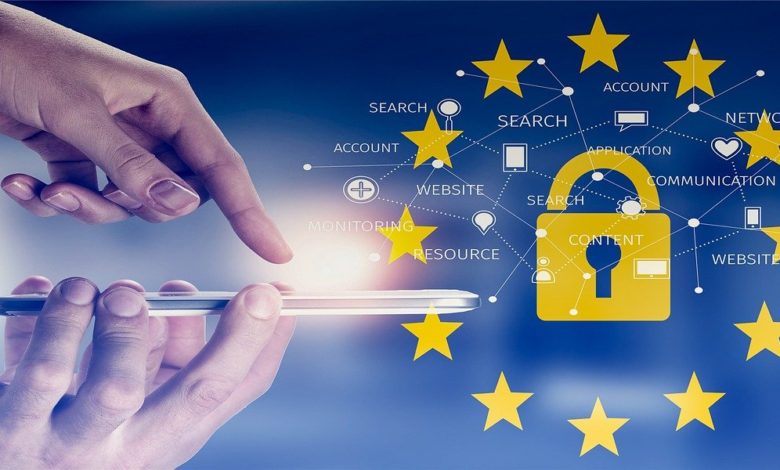What Does Digital Citizenship Mean?

Digital citizenship; It describes an activity that helps teachers, technology leaders and parents to understand what students / children / technology lovers need to know to use technology appropriately. Digital citizenship is not just a teaching tool; It is a way to prepare students / technology users for a technology-filled society. Digital citizenship is the norm for appropriate, responsible technology use. It seems that students and adults are afraid of using technology and are unsure of what to do. Proper technology use eliminates these problems.
Digital Citizenship Today
The issue of digital citizenship is gaining attention not only in the United States but all over the world. With the growth of Bring Your Own Device (BYOD) and 1: 1 initiatives in schools, it is necessary to talk about the responsible use of technology. There are many institutions and individuals working on this subject. Digital citizenship has 9 elements:
Nine Themes of Digital Citizenship
1.Digital Access:
Not everyone has the same opportunities when it comes to technology. Working right with equal digital rights and promoting electronic access is the starting point for digital citizenship. Digital exclusion makes it difficult to grow as a society increasingly using these tools. Helping to achieve and expand access to technology should be the goal of all digital citizens. Users should keep in mind that there are some that may have limited access, so other resources must be provided. It is an access program committed to ensuring that no one is denied digital access to become efficient citizens.
2.Digital Trading:
Technology users need to know that most of the market economy is done electronically. Legal exchanges take place, but the buyer or seller needs to be aware of the issues associated with them. You can buy toys, clothes, cars, food, etc. over the Internet. getting. At the same time, equal quantities of goods and services are surfacing (may include activities such as illegal downloading, pornography and gambling) that are against the laws or morals of some countries. Users need to learn how to be effective consumers in a new digital economy.
3.Digital Communication:
One of the major changes in the digital revolution is that a person can communicate with other people. In the 19th century, communication styles were limited. Communication tools in the 21st century began to offer a wide variety of options (eg e-mail, cell phones, instant messaging). The expanding digital communication options have changed everything because people are constantly communicating with others. Now everyone has the ability to communicate and collaborate with anyone, anywhere and anytime. Unfortunately, many users have not been taught how to make appropriate decisions when faced with such different digital communication options.
4. Digital Literacy:
While schools have made great progress in the field of technology infusion, much remains to be done. A renewed focus is needed on what technologies should be taught and how they should be used. New technologies are entering workplaces that are not used in schools (eg, online sharing spaces such as Video Conferencing, wikis). In addition, many different professions need urgent information (just in time information). This process requires sophisticated search and processing skills (ie information literacy). Students should be taught how to learn in a digital society. In other words, learners should be taught to learn everything, anytime, anywhere. Commerce, the military and medicine are excellent examples of how technology is used differently in the 21st century. As new technologies emerge, students need to learn how to use this technology quickly and appropriately. Digital citizenship includes educating people in a new way; these individuals need a high degree of information literacy skills.
5.Digital Etiquette:
Technology users see this area as one of the most pressing problems when dealing with digital citizenship. People do not learn digital etiquette before using technology. Creating rules and policies is not enough, we must teach everyone to be responsible digital citizens in this new society.
6. Digital Law:
Digital law deals with technology ethics in a society. Unethical use manifests itself in the form of theft and / or crime. Ethical use manifests itself in the way of compliance with the laws of society. Users need to understand that it is a crime to damage other people’s work, identity or property online. In a society, there are certain community rules that users should know. These laws apply to anyone working online. It is unethical to provide information to others, download illegal music, plagiarize, create destructive worms, viruses or Trojans, send spam or steal anyone’s identity or property.
7.Digital Rights and Responsibilities:
As in the American constitution, there is a basic set of rights granted to every digital citizen. Digital citizens privacy, free speech, etc. has the rights. Fundamental digital rights in the digital world must be addressed, discussed and understood. With these rights also comes responsibility. Users should help define how the technology is to be used appropriately. In a digital society, these two areas need to work together for everyone to be productive.
8.Digital Health and Wellness:
Eye safety, repetitive stress syndrome and robust ergonomic practices are issues that need to be addressed in a new technological world. Beyond physical problems, there are also problems with psychological problems that are becoming more common, such as internet addiction. Users should be taught that technology has its dangers. Digital citizenship includes a culture where technology users are taught how to protect themselves through education and training.
9. Digital Security (Self Protection):
There are people in the digital community / citizenship who annoy other people. It is not enough to rely on other members of the community for our own safety. In our own homes, we’ve installed locks on our doors and fire alarms on our homes to provide some protection. The same should be true for digital security. We need virus protection, data backup and surge control of our hardware. As responsible citizens, we must protect our information from external forces that could corrupt or damage it.





